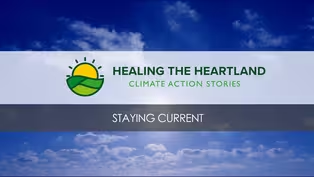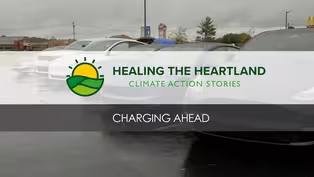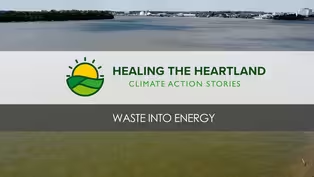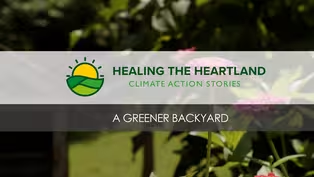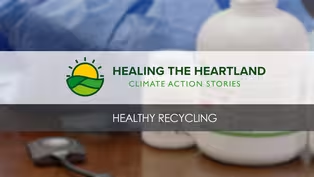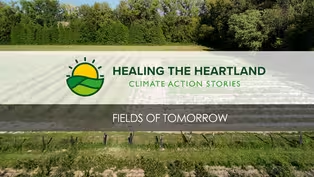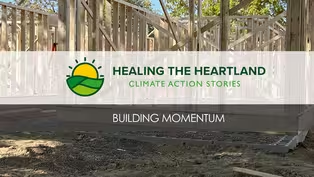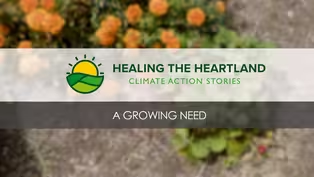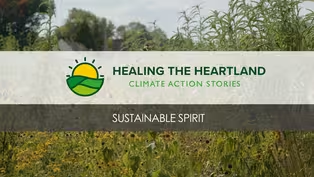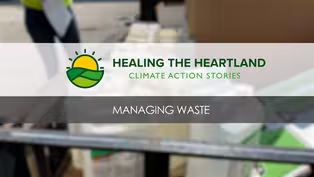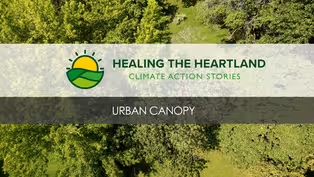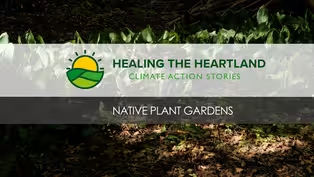Healing the Heartland: Climate Action Stories
Healthy Recycling
Clip | 3m 7sVideo has Closed Captions
A partnership between Berry Plastics and Deaconess Health helps reduce medical waste.
A partnership between Berry Plastics and Deaconess Health helps reduce medical waste.
Problems playing video? | Closed Captioning Feedback
Problems playing video? | Closed Captioning Feedback
Healing the Heartland: Climate Action Stories is a local public television program presented by WNIN PBS
Healing the Heartland: Climate Action Stories
Healthy Recycling
Clip | 3m 7sVideo has Closed Captions
A partnership between Berry Plastics and Deaconess Health helps reduce medical waste.
Problems playing video? | Closed Captioning Feedback
How to Watch Healing the Heartland: Climate Action Stories
Healing the Heartland: Climate Action Stories is available to stream on pbs.org and the free PBS App, available on iPhone, Apple TV, Android TV, Android smartphones, Amazon Fire TV, Amazon Fire Tablet, Roku, Samsung Smart TV, and Vizio.
We were just doing traditional mechanical recycling, and a lot of the things that come out of our OR cannot be mechanically recycled.
And so Berry, as a significant manufacturer of health care plastics, especially nonwovens, such as the surgical gowns and, what we call blue wrap that they used to, in this case, actually wrap some of the things that they sterilize in the hospital.
you know, we wanted to do something about this.
And so we worked with the Deaconess here locally to set up a recycling program for that blue wrap.
75% of the waste created during a surgery is completely non hazardous.
because so much of it is the packaging components and things of that nature.
So we kind of found out that some of the cleanest waste you're ever going to get.
Right.
So how do we build a program and a process that keeps the patient's safety first and foremost?
Cause that's the utmost concern at a hospital.
But how do we still manage this additional waste?
in the O.R.. We, got with our educators and made sure we were doing everything properly.
We only recycled materials that are opened before a patient gets in the room.
And so it's all pre patient, we didn't want to deal with hazardous waste that could have been in contact with blood.
but we wanted to set up a recycling program for this blue wrap to accept sterile, sterile waste.
And that could be recycled and send it to a process called advanced recycling So instead of traditional mechanical recycling, that just kind of, grinds the plastics and makes it over.
This is actually breaking it down to its chemical feedstocks and remaking it.
surgery is where it gets very interesting and fun.
any packaging they open like this.
A lot of our supplies come like this.
they can recycle.
These are recyclable.
All of this material.
Like I said earlier, that is woven.
Looks like cloth are recyclable.
And then any gowns that they may take off before the patient enters the room again is recyclable.
So these are all materials that you wouldn't think you could recycle.
And we use a lot of them, that are.
So it's it's clean plastic material that can be recycled and and just allows us to do something better with that versus throwing it away.
so we rely heavily on our environmental services staff they're responsible for collecting all of the recycled materials in all of our different areas, and getting it to the right place for recycling.
So just like to give you some rough numbers, like early on in the year over like an eight week period.
and at that point we looked at approximately collecting about like 1,000 pounds a week or so.
I know I do things because I do them at work and vice versa.
So we want to make sure that there's also positive things and more beneficial things that are going on at work that can translate to the home environment.
I think that's such that's a responsibility for the corporation to build good stewardship in their work environment.
That could translate to the home.
Clip | 3m 44s | Solar systems can be energy and cost efficient for residential and commercial buildings. (3m 44s)
Clip | 4m 19s | Both personal and mass transit electric vehicles greatly reduce greenhouse gas emissions. (4m 19s)
Video has Closed Captions
Clip | 3m 8s | Mesker Park Zoo and the Evansville Water Sewer Utility describe how they turn waste into energy. (3m 8s)
Video has Closed Captions
Clip | 3m 59s | Using native plants to have a lower impact on the environment. (3m 59s)
Video has Closed Captions
Clip | 3m 7s | A partnership between Berry Plastics and Deaconess Health helps reduce medical waste. (3m 7s)
Video has Closed Captions
Clip | 4m 35s | Sustainable farming practices and innovations. (4m 35s)
Video has Closed Captions
Clip | 3m 8s | Affordable, energy efficient housing program and affordable, restorative housing program. (3m 8s)
Video has Closed Captions
Clip | 3m 20s | How choosing local food and reducing food waste can help with climate change. (3m 20s)
Video has Closed Captions
Clip | 3m 31s | Local faith groups talk about the importance of environmental stewardship. (3m 31s)
Video has Closed Captions
Clip | 3m 10s | Dubois County Ag Day featuring plastic, tire, and pesticide container recycling programs. (3m 10s)
Video has Closed Captions
Clip | 4m 29s | Learn about the importance of an urban canopy. (4m 29s)
Video has Closed Captions
Clip | 4m 22s | Native plants combat climate change. (4m 22s)
Providing Support for PBS.org
Learn Moreabout PBS online sponsorship
- Science and Nature

Explore scientific discoveries on television's most acclaimed science documentary series.

- Science and Nature

Capturing the splendor of the natural world, from the African plains to the Antarctic ice.












Support for PBS provided by:
Healing the Heartland: Climate Action Stories is a local public television program presented by WNIN PBS
